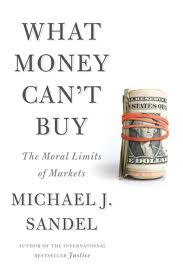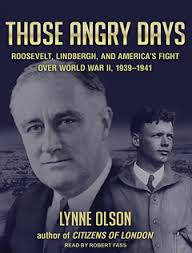A Thought Experiment – Part I
We are living in unique times and we are all handling this Covid-19 pandemic differently. There are parts of it that are scary, sad, crazy but it can also be enlightening. Let’s focus on that for a few minutes – trust me – it will be worth your time!
Let’s ignore the different conspiracies, possibilities and theories, and let’s imagine a world similar to ours. This is a thought experiment remember – so this would can be slightly different than our world.
In this alternate world, things in 2019 are exactly as our world was back in January 2019. The world’s economy is on tear, stocks are up, pipelines are being debated and planned, people are taking holidays, working, and shopping like normal. House prices just won’t stop rising. People are happy.
Of course there is a dark side, carbon emissions are building to dangerous levels and inequality is growing. House prices are out of control and the younger generations and immigrants are struggling to find any work – they turn to the ‘gig economy’ driving Ubers or biking around our food deliveries. Yes, in this alternate earth everything is the same as our planet, except for one difference – in Earth 2, there is a coordinated world leadership. Sure imagine them as you want. Maybe they meet yearly at a Swiss ski resort, or every July at a forested California campground, or maybe weekly in meetings at a Yale Society. Maybe they are the New World Order, or maybe they are the Globalists, or maybe they are just rich and powerful men who pull the levers of power in our society. Let’s call them the Masters of the Universe (MotU), since that is what they aspire to be in this alternate world.
In this alternate reality, these Masters meet every year meet to discuss future business possibilities; they discuss threats to the world, and they discuss solutions.
One year, back about 1990 they listened intently to presentations from some of the worlds leading scientists who came to them with startling news. It’s all over! Yep, the world will probably overheat itself and dry up. Storms will destroy oceanside cities, famine will destroy the country side, civil wars will tear apart society and the world as we know it will cease to exist. These Masters listened to suggestions and unlike current politicians, they understood and agreed upon the severity of the situation.
It was at these meetings that they came up with a plan. They spent the next decade pressuring world governments to cut carbon emissions. They would lobby for carbon pricing, they developed electric cars, nuclear reactors, and solar technology, anything to turn the carbon clock back. They would use the levers of democracy to push society towards a sustainable society.
For ten years the masters pushed democracies. They informed citizen. They educated. They put a price on most carbon and they launched satellites to monitor progress. And for ten long year……… Nothing happened. Citizens scorned elected officials who built bike lanes, they voted out politicians who raised gas taxes, they took green grants and used them not insulate homes, but to renovate and redecorate. They took carbon rebates and bought bigger vehicles, they used tax refunds to travel further – all the while the planets temperture grew closer and closer to the line of no recovery.
When the 11th hour came and the planet was hanging by a thread, the Masters knew they had to act. They knew their democratic efforts had failed. They knew democracy was not strong enough to operate against a selfish majority. They knew democracy could not rebuff the power of desire. They knew the time had come for non-democratic action.
The debated a staged revolt. Maybe they could use eco-terrorists to take control of governments and push back the carbon time bomb. There was not enough of them to make it happen. Gretta was useful and helped their cause but even the innocences of a child could not inspire people to action. This left the Masters with no choice – they could act or they could stand by democracy and let the planet die. The choice was clear.
The ‘virus’ hit in late 2019 but by March of 2020 the effects were clear. All leisure travel was eliminated, something the scientists has deemed necessary a decade ago. Total air travel was down to trickle – almost a sustainable level for the planet. Telecommuting, which was ‘impossible’ in most workplaces a month ago was suddenly commonplace or even mandatory. Executives that previously would have flow to Los Angelas or Tokyo suddenly found Skype or Zoom to be acceptable alternatives. Councillors did city meetings on Google Hangouts or Zoom – something that would have been illegal even a a month earlier. Doctors who for years resisted phone consultations instantly locked their clinic doors and made tele-health mandatory. Psychologists who previously claimed they needed to look their patients in the eyes, suddenly discovered that you could see a patient in a video call. Provincial and state governments that for years forced people into crowded motor vehicle offices for license renewals suddenly discovered that payments can be made over the internet and licenses can be mailed. Changes that had been refused or postponed for decades became the new norm in less than a month. Cars were parked and carbon was kept in the ground.
Oil companies that for decades has argued that they had a valuable resource and needed to be bought out if the government wanted to close them down, suddenly came clambering, begging, pleading for the government to bail them out. They had refused to cooperate with the slow carbon reduction plan and now their fate was sealed.
Scientists and Economists had long argued that much of the economy was misdirected. The economy gave preference to financial transactions with little real value. Manufacturing was geared towards things that people wanted but really didn’t need. And large parts of society’s disposable income went toward wasteful consumption – throw away items, rapidly changing fashion, fad items like spinners, phone cases, pet accessories, digital game purchases, vanity products, etc. Too few resources went towards healthcare, education, family time, relaxation and quality food. Society knew this was wrong, but had no way to alter the rat race, no way to change the direction, no way to slow down the acceleration – until it all ground to a halt.
Inequality was tolerated since there was always the myth that, ‘those people just don’t want to work’. This myth allowed us all to feel proud of ourselves while absolving us of the responsibility to help our neighbour. We could believe this until, all of sudden we were all unemployed. Then the truth suddenly became clear. The unemployed had served to keep wages low for the rest of us. They were a veiled threat to everyone working – one wrong move and you too could be out on the street.
Society has long talked about reform, but corporate interests always argued that to help the less fortunate would be to reward laziness. But in as little as a month, corporations went from shovelling money out of their saving accounts to their shareholders – to standing in line for welfare with the rest of humanity.
Transportation experts have for years talked about borrowing (while interest rates are low) to fund a massive expansion of public transport. This has been resisted by people who argue that government borrowing is dangerous. It drives up inflation and is a hidden tax on society they argued. Billions of dollars borrowed for transportation would be too much for our economy to bare. Yet after the virus hit, with almost no debate, political parties unanimously approved hundreds of billions of dollars in spending (of borrowed money) to pay household expenses, to keep corporations running, to fund virus research, to pay the unemployed. How tiny and irrelevant that previously contentious transit spending looks now.
Let us step back from this imaginary world. For the record – I don’t think the virus was intentional or designed to stop us from suffocating our planet with carbon dioxide. But I do think that the coronavirus provides a great lesson.
Everything necessary to deal with climate change was and has always been possible. Telecommuting, virtual drinks from home, less travel, walking, shutting down entire industries and redirecting other industries, international cooperation, large public spending, deficit borrowing, etc. This is not to say that the same measures currently in place are the ones that should be used to deal with climate change – it’s just that now, the appropriate measures don’t look so impossible.
A scarier prospect is that perhaps society is only capable of dealing with urgent threats. I’m reminded of the Eisenhower matrix. Climate Change and the Corona Virus both fall into that Important category. But because climate change is a slow emergency, it’s never urgent enough to be dealt with. Until it’s too late.

It’s entirely possible that democratic society is not equipped to deal with things in the Important/Not Urgent category. City counsels would rather debate the location of a new Stadium, or the removal of Historical Status from a building, then larger but slow issues like Climate Change. Those kids walking in wanting a $200 grant to go to a Hockey Tournament are urgent and likely take up more time in most Town Council meetings that things in Category 2. Important but Not Urgent items can always be pushed to later.
Until they can’t!









